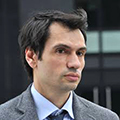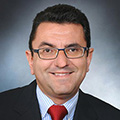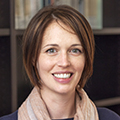First Semester | Second Semester
First Semester – 27 ECTS (CFU)
1. Probability and Statistics for Engineering Applications – 3 ECTS (CFU) – Prof. I. Iervolino
This course introduces fundamental concepts of probability and statistics with a focus on practical applications in civil engineering. Topics include random variables, commonly used probability distributions, statistical inference, regression analysis, and hypothesis testing. Basic Monte Carlo simulation and variance reduction techniques are also covered.

2. Seismic Hazard and Engineering Seismology – 6 ECTS (CFU) – Dr. V. Poggi
This course provides essential knowledge in applied seismology for engineering and geophysical practice. It covers intensity measures, seismic hazard assessment, and ground motion prediction, along with fundamentals of theoretical seismology such as wave propagation and source modelling.

3. Dynamic Analysis of Structures – 3 ECTS (CFU) – Prof. G. O’Reilly
The course introduces the dynamic response of structures to various excitations, including earthquakes, wind, impacts, and explosions. Topics include single- and multi-degree-of-freedom systems, free and forced vibrations, and practical applications in structural design.

4. Nonlinear Response Analysis – 6 ECTS (CFU) – Prof. R. Pinho & Dr. G. Gabbianelli
Students will explore advanced concepts in nonlinear static and dynamic structural analysis, particularly under seismic loading. The course covers constitutive modelling, second-order effects, and modern analysis techniques for steel and reinforced concrete structures.


5. Fundamentals of Seismic Design – 6 ECTS (CFU) – Prof. R. Monteiro
This course focuses on the seismic design of reinforced concrete structures, comparing force-based and displacement-based design philosophies. Topics include Eurocode 8 provisions, capacity design, detailing, non-linear modelling, and practical assignments related to structural design and analysis.

6. Seismic Design of Steel Structures – 3 ECTS (CFU) – Prof. G.A. Rassati
The course covers the fundamentals of seismic design of steel structures, starting from material behaviour and stability. It includes analysis of bolted and welded connections, limit analysis, and the design of moment-resisting frames and braced systems with energy-dissipating elements.

Second Semester – 33 ECTS (CFU)
7. Seismic Assessment of Masonry Structures – 3 ECTS (CFU) – Prof. F. Graziotti
This course aims to provide an introduction to materials, construction practices, structural behaviour, analysis methods and the main regulatory requirements for the seismic design of masonry buildings, as well as for the seismic assessment and adaptation/improvement of existing buildings.

8. Risk Assessment and Loss Estimation – 6 ECTS (CFU) – Prof. P. Bazzurro & Prof. D. Vamvatsikos
This course introduces risk assessment and loss estimation for assets exposed to earthquakes and tropical cyclones. It covers hazard modelling, seismic risk for individual buildings and portfolios, and practical case studies, with applications in insurance and reinsurance sectors.


9. Retrofit Strategies for RC Buildings – 3 ECTS (CFU) – Prof. R. Pinho
Students will learn the fundamentals of seismic assessment and retrofitting strategies for reinforced concrete buildings. The course covers performance-based approaches, common techniques, and insights from research and post-earthquake investigations.

10. Bridge Structures – 6 ECTS (CFU) – Prof. G.M. Calvi
This course aims to provide students with an in-depth understanding of the bridge design process, spanning from conceptual design to the detailed design of individual components. The course is also designed to help students understand the transmission mechanisms of applied loads, such as heavy traffic loads, impacts, horizontal braking/centrifugal forces, wind, and seismic loads on bridges.

11. Geotechnical Earthquake Engineering – 3 ECTS (CFU) – Dr. N. Ntritsos
This course aims to introduce students to the fundamental theories and methods of seismic geotechnical engineering and soil dynamics. In particular, the following topics will be covered: propagation of mechanical waves in geomaterials, seismic soil response analysis, soil liquefaction, seismic instability of slopes, superficial fault rupture, dynamic soil-structure interaction and seismic analysis of foundations and soil retaining systems.

12. GEM Models, OpenQuake Engine and Tools Training – 3 ECTS (CFU) – Dr. H. Crowley & Dr. M. Pagani
This course introduces the key concepts of seismic risk assessment and provides hands-on experience with the OpenQuake open-source engine. Through practical sessions, students will perform hazard and risk analyses, including scenario simulations and portfolio loss estimations.


• Internship in an affiliated institution – 6 ECTS (CFU)
• Final exam – 3 ECTS (CFU)